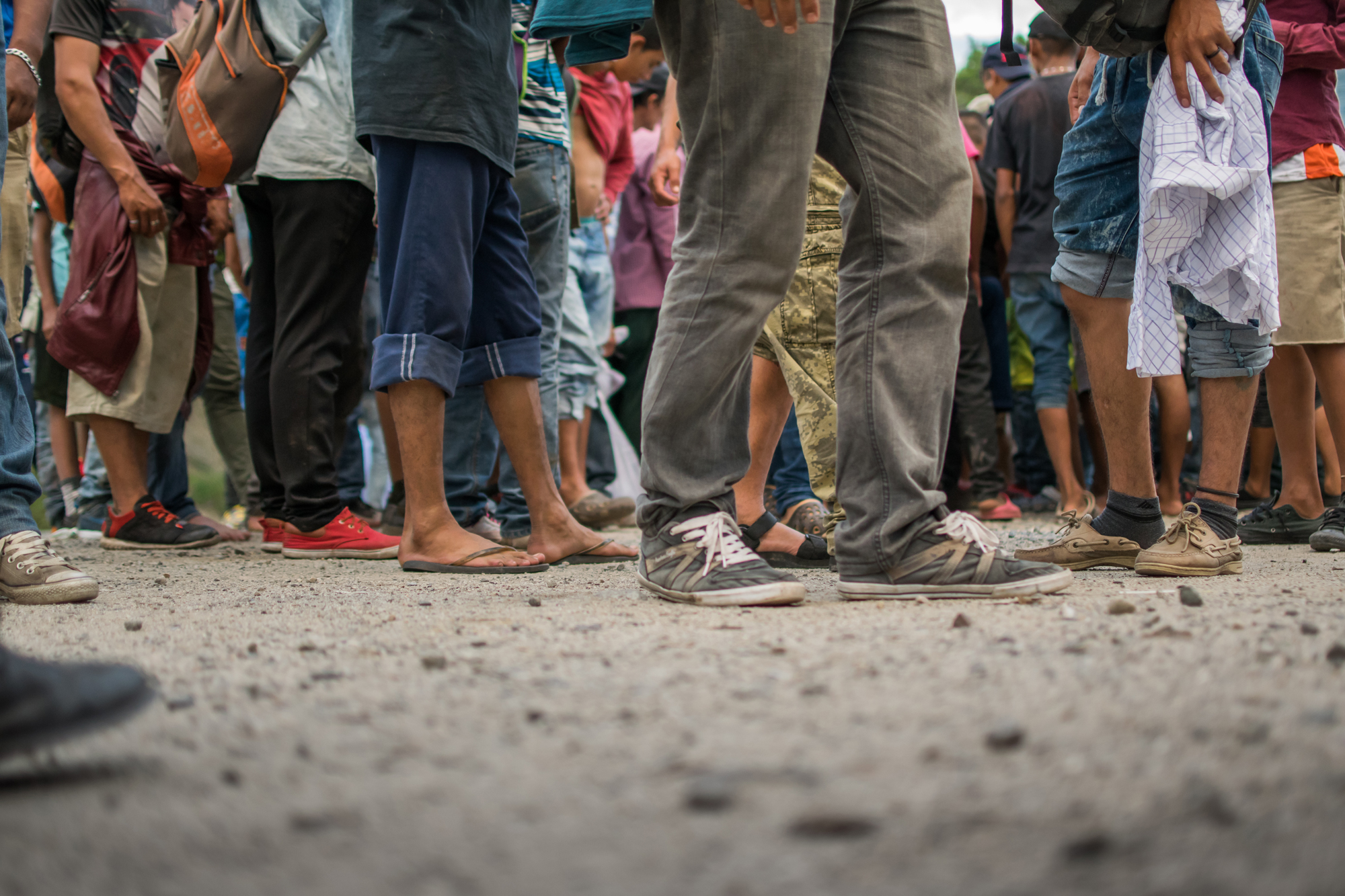
Organ Selling: A New Currency For People Smuggling
UNHCR estimates there were at least 103 million forcibly displaced people worldwide by mid-2022, with over 30 million being refugees. The real figures are likely to be much higher, with many people migrating regionally and internationally in search of better economic, political, security and social conditions, including through paid irregular migration channels. Given the common conditions shared by many migrant source countries - conflict, economic crisis, corruption and poverty - it is unsurprising that many migrants often struggle to meet the cost of migrating, both through legal channels or through smuggler services. It is a common misconception that smugglers are the cheap and ‘easy’ option - in fact, it is very common to see smuggling routes that cost upwards of $20,000 USD per person. With many migrants desperate to leave but not having the financial means to do so, some smugglers are now accepting organs as payment for irregular migration.
Forced organ removal vs organ selling
There is an important distinction between forced organ harvesting and trafficking - obtained against a person’s will and often involving tricking or trapping vulnerable migrants along migration routes - and migrants actively and willingly selling their organs to smugglers in order to fund migration attempts. The latter is a much less known and researched area of the illegal organ trade.
Black market organ trafficking
Black market organ trafficking is common in many migration source countries. A recent report by Global Financial Integrity estimated that globally, the illegal organ trade is worth between $600 million-$1.2 billion USD annually. While Iran is the only country in the world that legally allows the sale and purchase of organs for money, demand still tends to far exceed supply, with black market kidneys reaching prices of $160,000 USD in Iran, while a legal kidney is $2,000-4,000 USD. To prevent cases of ‘transplant tourism’ where people travel with the intention of buying organs, Iran has banned foreigners from being able to participate in their legal organ trade system. Policies such as these have had little impact on the growth of transnational illegal organ trade. Kidneys in particular are reported to be frequently smuggled from Iran to Iraq or Turkey by local and international groups working together - a partnership between smugglers, organ traffickers, and international crime syndicates. Medical migrants travelling to Iran to purchase organs legally allegedly use smuggler services to purchase fraudulent house and property ownership documents, in order to appear to live in Iran.
Globally, refugee and internally displaced persons (IDP) camps are vulnerable targets for human traffickers and organ harvesting. Refugees and IDPs are often tricked into migrating for false jobs and then find themselves being trafficked, including for organ harvesting, or are subject to physical abduction for organ removal. Local populations in search of irregular labour migration are also at risk of trafficking and organ harvesting - Bangladesh is a prime example, where refugees and impoverished locals alike are targeted. Many people from Cox’s Bazar, Bangladesh, are lured to India each year with the promises of jobs; once there, a number of cases have been reported where people have had their kidneys forcibly removed. In other countries such as Thailand, there have been reports that migrants who die in detainment without family reportedly have their organs removed post-mortem and sold on the black market, with graveyards found along the Thai-Burma border containing deceased irregular migrants missing organs.
Organ sale for irregular migration
Although it is not uncommon for people to sell their organs to criminal groups out of economic desperation, potential migrants selling their organs to people smugglers, specifically in exchange for irregular migration facilitation, is a relatively new phenomenon.
Pakistan is emerging as a key location where smugglers will accept payment for smuggling services with organs, particularly in densely populated cities in Balochistan, Punjab and Sindh provinces. Smugglers here have been reported accepting payments in organs for irregular migration passage to Europe through Azerbaijan, and Canada and the U.S. through Brazil and Mexico. Some smugglers are specifically approaching Afghan refugees in Pakistan, Iran and Central Asia, offering them fraudulent visas and passage to Europe, in exchange for kidneys, since many Afghan refugees do not have the funds to pay for smuggling services.

Similar reports are emerging in Sri Lanka, India, Bangladesh, Iraq and North Africa. Some countries have a well established black market hospital or clinic infrastructure, so remove the organ prior to the migrant’s departure - such as Pakistan and India. However, organs are also removed at various points along a migration route, reducing the organ transport logistics and giving the migrant some confidence that the smuggler can actually facilitate their movement. Some migrants from Pakistan reportedly use smuggler services to travel to Libya, where their kidneys are removed, before being placed on irregular boat trips to Italy. Prior to the Ukraine war, it was common for migrants from Iraq - or Syrian refugees - to engage people smugglers in Iraq for routes to Europe via Ukraine, with organs being removed in Ukraine to fund the trip.
The complex and growing intersection between people smuggling and organ trafficking is alarming and has the potential to expand rapidly given the demand for irregular migration services. STATT Consulting continues to monitor and analyse this issue as it grows and transcends borders.
